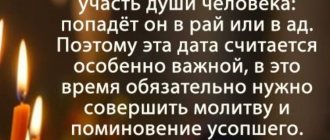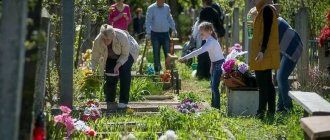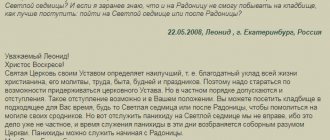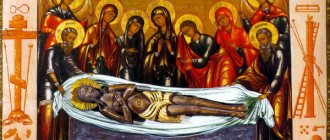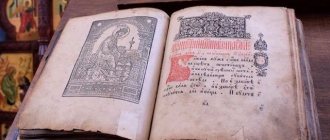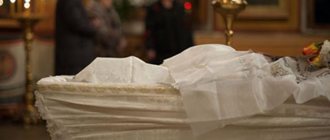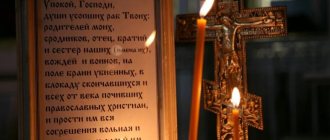Moscow, 03/01/2022, 09:43:43, editorial office of FTimes.ru, author Anastasia.
Bright Week begins on the first day after Easter. Parishioners say goodbye to the restrictions of Lent, and a week of joy begins. Since there are many consecutive weekends in May 2022, Russians have the opportunity to relax. Some are planning a trip to the cemetery. This is necessary in order to honor the memory of deceased relatives and pray for them. Before you go there, you should find out whether it is possible to go to the cemetery after Easter until Radonitsa.
Is it possible to go to the cemetery immediately after celebrating Easter?
In 2022, on April 28, Orthodox Christians celebrated the most anticipated church holiday - Easter. According to tradition, on this day festive food was served on the table - Easter eggs and Easter cakes. However, not every Christian knows when to go to the cemetery after Easter. The church told us when you can start bringing Easter cakes and Easter eggs to the graves of deceased relatives.
According to the Orthodox Church, it is better not to go to the cemetery before and after Easter. According to priests and confessors, the bright holiday of Easter should not be overshadowed by grief for deceased relatives. After all, on the day of the Resurrection of the Lord, the savior of the Christian people, Jesus Christ, was resurrected. This is why the Church does not serve a memorial service during Holy Week. It is best to visit the graves of deceased relatives after Radonitsa, which will be celebrated in Russia in 2022 on April 18.
The idea that a cemetery can be visited immediately after Easter originated historically. According to experts and researchers, the ancestors of Orthodox Christians simply had no choice. This is due to the fact that during the October Revolution in villages, churchyards were often located near churches. Since Orthodox churches were not everywhere, Christians had to travel a long distance in order to get to the Divine service. In order not to waste time, we tried to visit the cemetery, since traveling the same long distance a second time is a costly affair.
Other reasons
The church does not prohibit pregnant women from visiting the cemetery.
However, in this position the lady can be very sensitive and subject to strong feelings. Therefore, if she has even the slightest doubt that it is worth visiting the grave, it is better to abandon this idea. This will be better for both her and the unborn child. Neither the church nor society condemns skipping “mandatory” visits (on the 9th, 40th day, etc.) by pregnant women. Women and girls with menstruation can also visit the cemetery according to their desire and well-being. The issue of visiting a cemetery for children of primary school age is decided by their parents. Priests do not offer any instructions on this matter, and psychologists can give various arguments for and against such trips. The arguments in favor are usually the development of a calmer and more conscious attitude towards death and human mortality in the child. Opponents argue that visiting a funeral or cemetery can be a shock that will develop in the child deviations and an unhealthy interest in the attributes of death.
Each parent must decide for themselves whether to take their child to the cemetery with them.
But people who are drunk should not come to the churchyard. Not only is this disrespectful to the dead, but the living are unlikely to approve of such behavior.
As for the time of day, there are no specific prohibitions, although there is a recommendation not to come to graves after sunset. This can be easily explained by the eerie flair that permeates the image of the cemetery. But there is a more compelling reason than fear of the supernatural - in cemeteries at night you can meet not zombies or ghosts, but very real drug addicts, homeless people or sectarians.
Despite the fact that funeral culture is largely determined by religion, the Orthodox Church reserves the right for its parishioners to visit the cemetery at any time. Even funerals during Easter are not considered a serious sin, although they are not really encouraged.
When can you take Easter cakes and Easter eggs to the cemetery?
The Church notes that the best time to visit the cemetery after Easter is the celebration of Radonitsa. It is believed that in the period before this celebration, visiting the cemetery is extremely undesirable. So, during the period of Radonitsa, or Parent's Day, Orthodox Christians can visit the graves of their departed relatives.
Parent's day occurs 9 days after Easter, and the exact date is determined according to the Orthodox calendar. On the day of Radonitsa, you can also start cleaning the cemetery. Monuments need to be decorated with flowers and the graves need to be put in order. The Church reminds Christians that the very word “Radonitsa” is consonant with the word “joy.”
On Parents' Day you should not be sad or mourn. Upon arrival at the cemetery, it is best to remember the happy moments spent with deceased relatives. The festive food that Orthodox Christians bring with them to the cemetery on Radonitsa Day should also be prepared with bright thoughts about the souls of deceased loved ones. On this day, it is customary to share the joy of the Resurrection of Christ together with loved ones who have passed into another world.
Subject:
- Radonitsa
Cemetery: myths and reality
Since ancient times, the Slavs knew that they should not only bury the deceased, but also follow the rules, knowing when to visit the deceased. After all, such signs are clues that you need to be able to decipher. By listening to the “whispers” of the other world, knowing when to go to the cemetery, the living can avoid major troubles.
When loved ones pass away, they find peace in the graveyard, a place saturated with cemetery energy. If traditions are followed, negativity will not harm the relatives of the deceased during a visit to the cemetery.
The first thing you should do when visiting a grave is to wash your face with water. It also needs to be sprinkled on your hands and face after leaving. You should not drink this water; it is used only for washing and caring for the graves of the deceased. You also need to be sure to keep an eye on your things and not forget anything, put everything away and take it away. People associated with black magic use any forgotten things when visiting a cemetery to cause damage.
Why do monuments fall?
Sometimes, while visiting a cemetery, loved ones encounter a fallen monument. The memorial slab is installed a year after the funeral and, in theory, it should already be firmly in the ground. Many people believe that monuments fall if you bury a bad person, but this is not true. A fallen burial slab is a sign that the soul of the deceased cannot calm down due to unfinished business. What should the family do in this case:
- Find a medium and find out why the soul of the deceased is worried.
- Having learned the answer, finish all the affairs of the deceased.
- Visit the church and ask the clergyman to serve a prayer service.
- Light a candle for repose.
- Remember the deceased and read the prayer for several days.
Signs associated with burials
When a person goes to a cemetery, it is necessary to understand that this is not a place for idle walks. You should behave calmly among the dead, do not litter, if you have the urge to go to the toilet, you need to be patient and not desecrate the graves. Many of our citizens bring food to the deceased and leave food, hoping that birds or animals will eat it in the evening.
The priest advises giving food brought to the cemetery not only to animals, but also to people asking for alms.
Anyone who constantly goes to the churchyard should know the signs, which become very useful and answer many questions. Namely:
- falling in a churchyard, especially in the evening, is a negative sign warning the relatives of the deceased about a threat;
- why it suddenly began to rain when visiting the dead - this means that soon those who came will experience personal changes;
- if a person stays near the graves for too long after a funeral, he will face health problems, especially if he likes to come to the cemetery at dusk;
- when the time comes to leave the churchyard, it is forbidden to turn around, otherwise the living soul becomes helpless before the spirit of death;
- as many things are brought, so many need to be taken back, you cannot leave something behind, it will bring trouble to the living;
- There is no need to visit the churchyard alone; it is better to take an accompanying person.
None of the priests forces a person to blindly trust signs and indicate on what days one can go to the cemetery. But we must respect the rules. You shouldn’t completely trust superstitions, but you shouldn’t forget that many people visit the territory of the dead. And most of them come and leave the cemetery according to the canons, knowing on what days they visit the cemetery.
Is it possible to remember those who committed suicide on Radonitsa?
Remembrance for a believer is, first of all, prayer, but the Church does not pray for suicides as for those who have arbitrarily rejected God. The names of suicides are not written in notes, a piece of the Liturgy is not taken out for them, and they are not prayed for at funeral services.
Of course, the loved ones of a person who has committed suicide still remain dear to them, and the impossibility of prayer only increases the pain. The Church has a special rite of prayer for consolation and support of grieving relatives, but it is performed by separate agreement with the priest and is not a commemoration. Suicides can be commemorated in personal prayer, reading, for example, the prayer of the Venerable Elder Leo of Optina: Seek, O Lord, the lost soul of Thy servant (name): if it is possible, have mercy. Your destinies are unsearchable. Do not make this my prayer a sin, but Thy holy will be done.
Cemetery signs
You should only come to the cemetery with your head covered. Otherwise, lost hair (or other biomaterial of a living person) can be used in black rituals.
After visiting the grave, all disposable items (cups, napkins, plates) are thrown into a trash container on the territory of the cemetery. Or they are washed at home with running water.
The belongings of the living cannot be left in the cemetery. Or take something home from the grave.
If during a visit to the cemetery an item falls to the ground, it is better to leave it there; it already belongs to the dead. If this is a necessary item (for example, keys), you should rinse it with running water.
You should leave the cemetery the same way you came. Even if the purpose of the visit was several graves and there is an opportunity to exit from the other side of the cemetery, you should not do this.
What not to do after burial
Orthodoxy has rules of behavior after a funeral, they include a ban on certain actions
The soul of the deceased is still in the house, next to loved ones, for 40 days; you need to behave carefully during this period, not to disturb the calm atmosphere. It is not recommended to undertake repairs, rearrangements, or moves.
It will be more pleasant for the soul to spend the last hours in a familiar atmosphere, surroundings, among familiar favorite things.
For the same reason, you should not distribute the deceased’s clothes or his belongings at first. Preserving a familiar environment has a beneficial, calming effect on the living, and does not emphasize the irreplaceability of loss and changes in life.
Traditionally, a ritual with closed mirrors and other reflective surfaces is also observed. The TV and music equipment are not turned on loudly in the house, and cheerful and noisy feasts are not held.
Orthodox customs of visiting a cemetery
Prayers are read at will. However, there are special prayers for the deceased:
- About a deceased Christian.
- Widower's prayer.
- Widow's prayer.
- About deceased children.
- Prayer for deceased parents.
- Akathist about the one who died.
- Akathist about the repose of the dead.
Priests warn that it is forbidden to drink alcohol at the graves of Orthodox Christians. Visiting a cemetery is not a fun holiday.
Under no circumstances should you pour alcohol or sprinkle crumbs on it. Such actions insult the deceased. It’s better to clean up the grave and remain silent, remembering the deceased. It is prohibited to bring artificial flowers. But you can plant fresh flowers or other plants - they are a symbol of eternal life.
The history of the emergence of Radonitsa, the day of the first church-wide commemoration of the dead after Easter
The emergence of Radonitsa has its origins in paganism. Residents of Eastern Europe believed that the soul does not die, but passes into another matter. It was a common belief that the dead could return to the world of the living on a certain day.
Some tribes watered the ground in which the deceased was buried with wine. The ceremony was called a funeral feast.
The Orthodox Church tried to eradicate such rituals, but some of them still survived. Parents' Saturdays were invented. These days, the Orthodox Church allowed believers to visit the cemetery and visit the deceased.
It is customary to honor the dead in many countries. Some religions have their own customs and folk signs. Orthodoxy does not accept drinking alcohol in a cemetery, as this is more related to paganism.
Why are there no funerals held on the Feast of the Resurrection?
Orthodox traditions have been carefully preserved for centuries, but certain periods of history made their own adjustments. In the years when most churches were closed, people gathered at the cemetery on church holidays. Bright, joyful emotions associated with the Resurrection of Christ and the granting of hope for eternal life were mixed with sadness for deceased relatives. The tradition of celebrating the Resurrection near the graves of the dead is disappearing; everyone can now visit the church for the festive service. The Church Charter prohibits going to the graves of relatives on Sunday; they celebrate a great event in the life of believers in the Temple. People gather with families around a rich table with traditional dishes, enjoy life, delicious meals, and communication. When reading the Liturgy, the priests do not conduct Easter commemoration of the dead, but at the request of parishioners they can conduct a short litany for them.
What the Church warns about
Easter week is the period when Orthodox Christians celebrate the resurrection of Christ and rejoice in the miracle of eternal life given by God. On holidays, priests and Orthodox Christians glorify the son of God, remember the sacrifice he made for the sake of people; the funeral service for Easter takes place after the evening service, it is accompanied by Easter chants. What can be done according to the canons? You should pray with joyful thoughts and mood. This is a time for pleasant events, meetings, visits, a delicious feast at the end of Lent. Such an atmosphere is not compatible with sadness and longing for the departed; there is another time for remembrance. If the date of death falls on a holiday this year, you are allowed to say prayers for the deceased at home and submit a note to the priest asking him to remember the deceased at the litany after the Liturgy. And the trip to the grave and the funeral meal must be postponed until Radonitsa.
